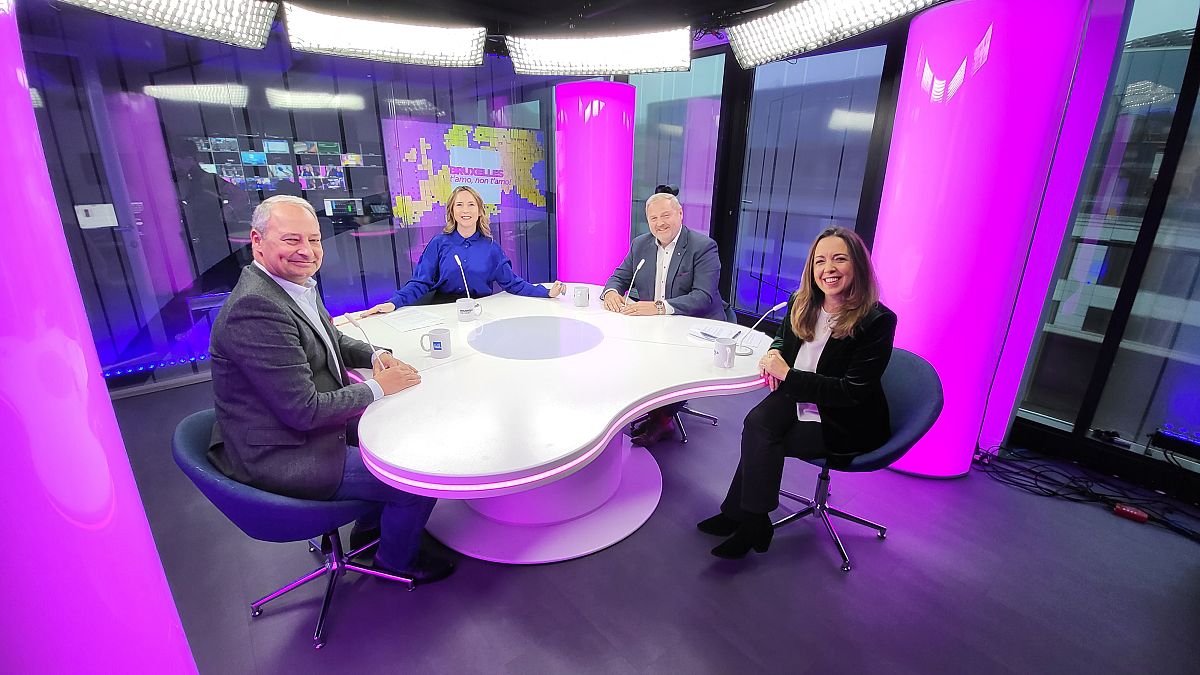Health
Excessive social media use has many of the same effects as substance abuse, says expert
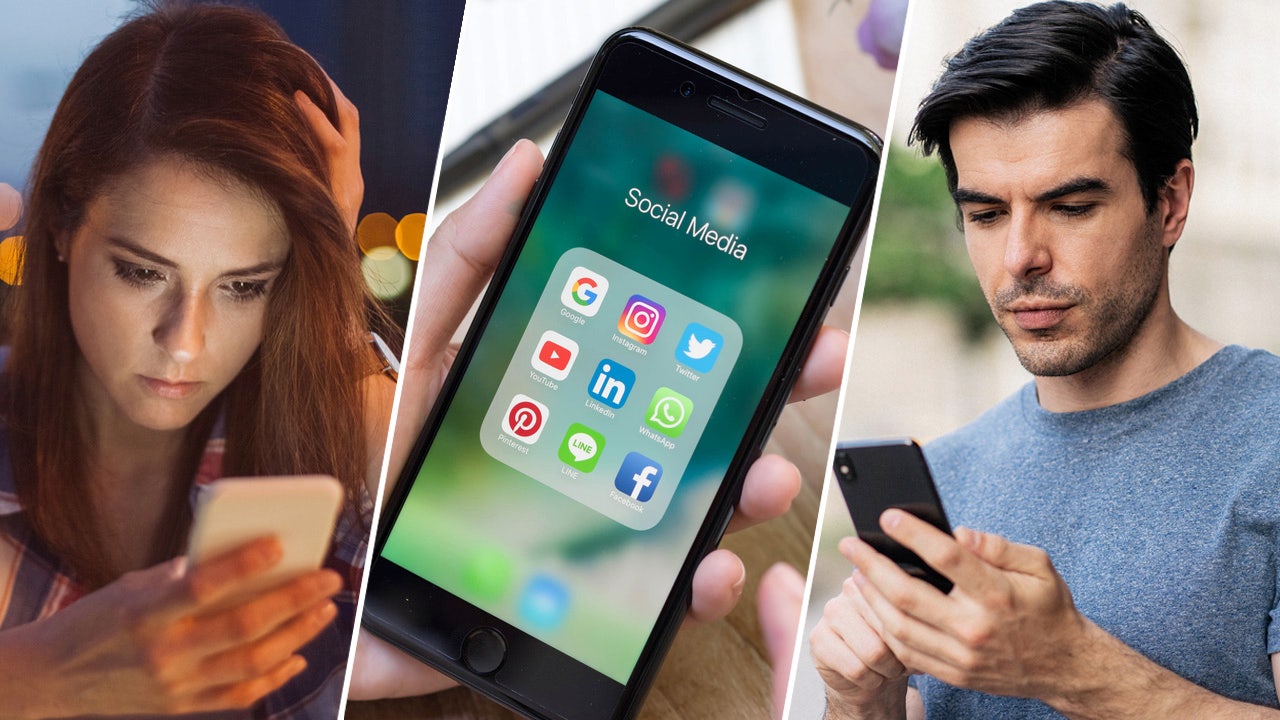
The average American spends nearly 2½ hours per day on social media, and that number more than doubles for teens, studies have shown.
For many people, the reliance on social media can feel much like an addiction — and many experts believe that’s exactly what it is.
“Social media addiction is not yet recognized in our diagnostic manual — however, we have seen a growth in social media use, and research has begun to show some similarities with addiction, just not enough to define a diagnosis formally,” Lindsay Oberleitner, a clinical psychologist and education director at SimplePractice in Detroit, Michigan, told Fox News Digital. SimplePractice creates medical software for private health care providers.
SURGEON GENERAL’S ADVISORY ON SOCIAL MEDIA AND YOUTH MENTAL HEALTH COMES AMID ‘REAL-TIME EXPERIMENT’
Another commonly used term, “problematic social media use,” does not quite capture the depth of difficulties that individuals are experiencing with social media, Oberleitner said.
“‘Problematic’ can imply risky behaviors, such as illegal behavior on social media, rather than the personal pattern of detrimental use to which social media addiction refers.”
Lindsay Oberleitner is a clinical psychologist and education director at SimplePractice in Michigan. “Social media addiction is not yet recognized in our diagnostic manual — however, we have seen a growth in social media use, and research has begun to show some similarities with addiction,” she told Fox News Digital. (Lindsey Oberleitner/SimplePractice)
One Reddit user, l3moncardboard, recently shared an experience with social media dependency.
“I am insanely addicted to my phone. My screen time is disgusting and I’m ashamed — it’s upward of five hours per day … It creates the worst case of anxiety in my brain and makes me overthink,” the person also wrote.
TEENAGE BINGE-DRINKING: WHY IT’S SO DANGEROUS FOR YOUNG PEOPLE TO OVERINDULGE IN ALCOHOL
“My days are quite literally dictated by if certain people respond to the snap I’ve sent them or not. How can I manage this? It’s absolute insanity and I can’t stand it.”
Warning signs of social media addiction
Some of the telltale signs of problematic social media use can mimic the symptoms of behavioral addictions and substance use disorders, but on a smaller scale, said Oberleitner.
One of the biggest red flags is when the excessive use of social media platforms interferes with other daily activities.
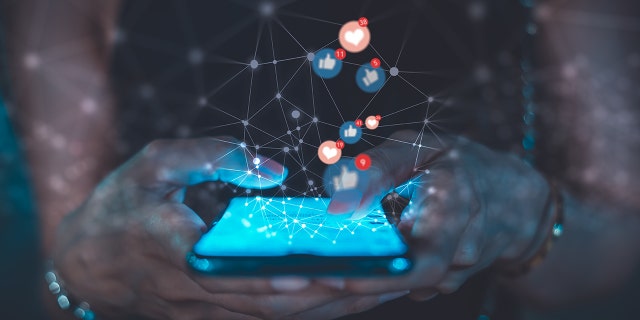
The average American spends nearly 2½ hours per day on social media, and that number more than doubles for teens, studies have shown. (iStock)
“The individual might begin to withdraw from in-person events, disengage while at social events or quit participating in activities they used to enjoy,” the doctor said.
“We might also see concerning levels of distress when they can’t use social media.”
TEENS AND SOCIAL MEDIA: AMERICAN PSYCHOLOGICAL ASSOCIATION ISSUES GUIDANCE FOR SAFE USE AND ‘INSTRUCTION’
Someone who is addicted to social media will likely continue to use it despite the harmful effects, Oberleitner said.
“For example, the individual is aware that the time spent on social media interferes with school or work performance, but they do not decrease their time spent,” she said.
“I am insanely addicted to my phone. My screen time is disgusting and I’m ashamed.”
The person might attempt to reduce the time spent on social media — but is likely unsuccessful.
“We may also see that family and friends are upset by the individual’s use of social media, to the point that it causes strain on their relationships,” Oberleitner noted.
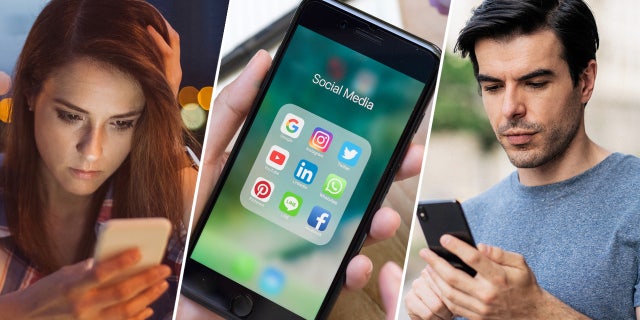
Excessive social media use can mimic substance addiction, one clinical psychologist told Fox News Digital. (iStock)
Excessive social media use can also cause impaired school and work performance, feelings of isolation and loneliness, negative self-image, sleep difficulties, disordered eating and increased symptoms of depression and anxiety, the doctor warned.
“Broadly, in addictive disorders, we see a pattern of a loss of control, compulsivity of use, negative consequences on personal and interpersonal functioning, and intense desires for use,” she added.
The risk factors
While anyone can develop an unhealthy reliance on social media, it tends to be more prevalent among young people, Oberleitner said.
“Negative impacts from overuse are particularly problematic for youth,” she said. “Brain development continues into our 20s, and the frontal cortex, responsible for planning behavior, is the last area to develop fully.”
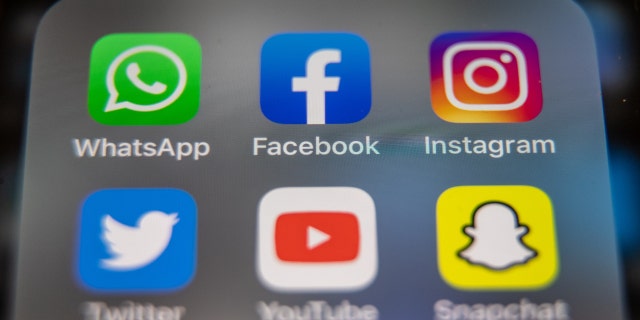
Someone who is addicted to social media will likely continue to use it despite the harmful effects, Oberleitner said. (Matt Cardy/Getty Images)
Young people are also less likely to consider the risks of their harmful behaviors — making it harder to stop them, the doctor pointed out.
“Coping strategies, social skills and emotion regulation are all skills we learn and develop in childhood, adolescence and beyond,” she went on.
“Excessive social media use can interfere with the development of each of these areas.”
“Individuals who experience anxiety and loneliness are more prone to problematic social media use.”
As one teen user wrote on Reddit, “I’m quite young and want to enjoy my teenage years. My phone has caused me so much unnecessary negative emotions already, and I’ve just reached a point where it’s completely draining and dictates the way I go about daily life.”
TEEN GIRLS SPEND MORE TIME ON ‘SENSITIVE’ SOCIAL MEDIA CONTENT THAT CAN HARM MENTAL HEALTH, REPORT SAYS
Individuals with high impulsivity are also more likely to display addictive social media behavior, said Oberleitner, as it is harder for them to stop engaging in unhealthy behaviors.
“It has also been observed that individuals who experience anxiety and loneliness are more prone to problematic social media use,” she added.
Doctor’s tips for detoxing
When it comes to approaches to stopping the overuse of social media, one size does not fit all, said Oberleitner.
Many people use a combined approach, starting with a “full-stop period” when they don’t use social media at all — and then gradually restarting with moderation.

Some of the telltale signs of problematic social media use can mimic the symptoms of behavioral addictions and substance use disorders, but on a smaller scale, said Oberleitner. (iStock)
“The full-stop approach mimics abstinence-only approaches in substance use,” said Oberleitner. “It is unlikely to be feasible to never return to social media use, so the key is setting the time you want to step away.”
This might be a day, weekend, week or even a month, which gives the person a chance to “break the reinforcing cycle of social media use,” she said.
“A full stop can be as simple as hiding away computers and tablets, and removing phone apps that make social media access easy,” Oberleitner said.
SURGEON GENERAL RELEASES ADVISORY CALLING FOR IMPROVED SOCIAL CONNECTION
After the full-stop period, the person could resume use with “moderation or harm reduction approaches” in place, she said.
“Some examples could be setting a 30-minute time after dinner each day that you look at social media, or only engaging with it on the weekend for a limited time,” said Oberleitner.
“It might also include making plans to reengage with activities you have been missing out on because of social media use.”
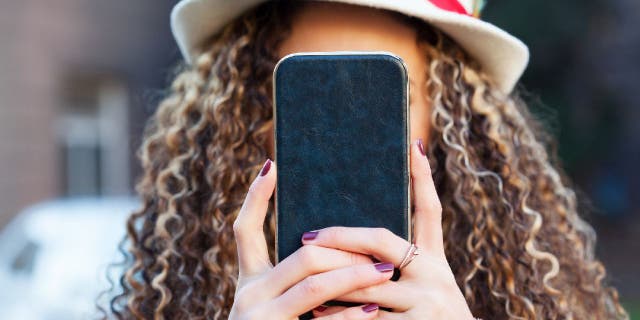
One of the biggest red flags is when excessive use of social media platforms interferes with other daily activities, Oberleitner said. (iStock)
This approach is most likely to work when an individual has a network of individuals who will support attempts to cut back, the doctor said.
For some, it may be helpful to make accessing social media harder than usual.
This might mean removing phone apps, not saving passwords on browsers so extra steps are needed to sign in, and putting away tablets and computers.
ADDICTION COMPLICATES PAIN MANAGEMENT, BUT NEW GUIDELINES OFFER HELP FOR ‘COMPLEX PATIENTS’
“Reducing access can involve an active choice to set a time each day devoted to social media while simultaneously committing to not accessing social media at any time outside of that explicit time window,” Oberleitner said.
When treating people with addictions, she often helps them identify triggers for their behavior.
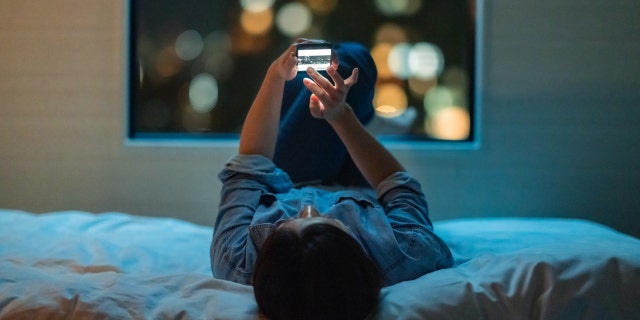
Even those who don’t consider themselves addicted to social media can benefit from reducing their usage and adopting healthier relationships with the technology, noted Oberleitner. (iStock)
“The closer the approximation of the trigger to the behavior we want to change, the harder it is to resist,” she said.
“So regarding social media use, it will be tough to change our behavior if we are sitting on the couch with our tablet next to us.”
Real people share detox tips and tricks
One Reddit user, urcrain, offered this tip: “Determine what you are spending most of your time doing on social media. If it’s meme hunting and sharing, try eliminating that. Find alternative ways to get important areas of social media in a less addictive way.”
“Try to find things to do that can keep you entertained and busy during the times that you usually want to pick up your phone.”
ZenithArmageddon offered more tips: “Try to find things to do that can keep you entertained and busy during the times that you usually want to pick up your phone. Busy hands are great to keep the phone away.”
This person also suggested, ,”If you find yourself returning too much, then try to reduce the amount of stimulation you get from your social media. Avoid ‘for you’ recommendations such as the explore tab on Instagram, and mute the stories and posts on friends who you don’t really keep up with. It’s OK to still look at what your friends are doing, but try to catch yourself before you go down the ‘explore’ rabbit hole.”
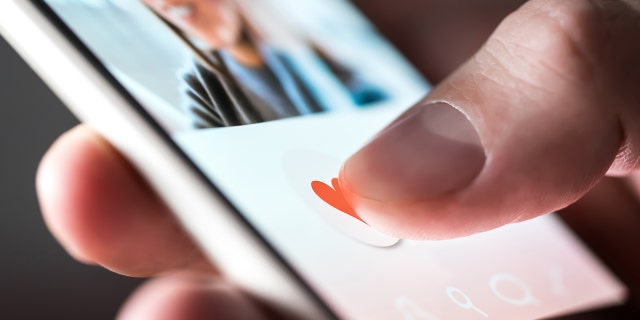
“Reducing access can involve an active choice to set a time each day devoted to social media while simultaneously committing to not accessing social media at any time outside of that time window,” Oberleitner said. (iStock)
Another user, NavyRedRose, suggested more approaches: “Some phones can have you set screen time reminders and downtime. For example, I’ve added a 45-minute limitation per day to certain social media apps. Once I hit the limit, it’s no more of that app for the rest of the day.”
DEMENTIA PATIENTS WHO TAKE OPIOIDS FACE ‘WORRISOME’ DEATH RISK, NEW STUDY FINDS
This person also wrote, “I noticed that using my local library’s app and borrowing audiobooks has helped me put my phone down more as well. I can listen to an audio book or podcast as a distraction, but I can also do something else while I’m listening that keeps me present in my day-to-day life.”
Other suggestions included adopting a “digital Sabbath” one day per week, only using social media on alternating days, practicing mindfulness exercises, and focusing only on quality content instead of “mindlessly scrolling.”
CLICK HERE TO SIGN UP FOR OUR HEALTH NEWSLETTER
Even those who don’t consider themselves addicted to social media can benefit from reducing their usage and adopting healthier relationships with the technology, noted Oberleitner.
The doctor also emphasized the “urgent need” for continued research and development in this area, as well as a greater integration of addiction-related assessment and treatment across health care.
Weighing benefits and risks
Despite its risks, social media use is not all bad, Oberleitner said — after all, there was a reason for its rapid growth.
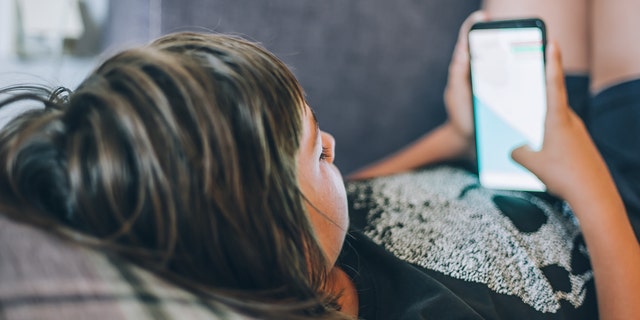
“Negative impacts from overuse are particularly problematic for youth,” said Oberleitner. (iStock)
“Social media can reduce stigma and isolation for individuals by finding networks of individuals with similar experiences and interests — connections that might not be possible within someone’s immediate community,” she told Fox News Digital.
It can also allow connection during isolation, such as illness, and enable connections through distance and time, she said.
“Suppose we can continue to support efforts to help people decipher helpful from non-helpful, and informed from misinformation, when viewing social media,” Oberleitner said.
“In that case, it can also be an excellent source of access to information.”

Health
Children exposed to higher fluoride levels found to have lower IQs, study reveals
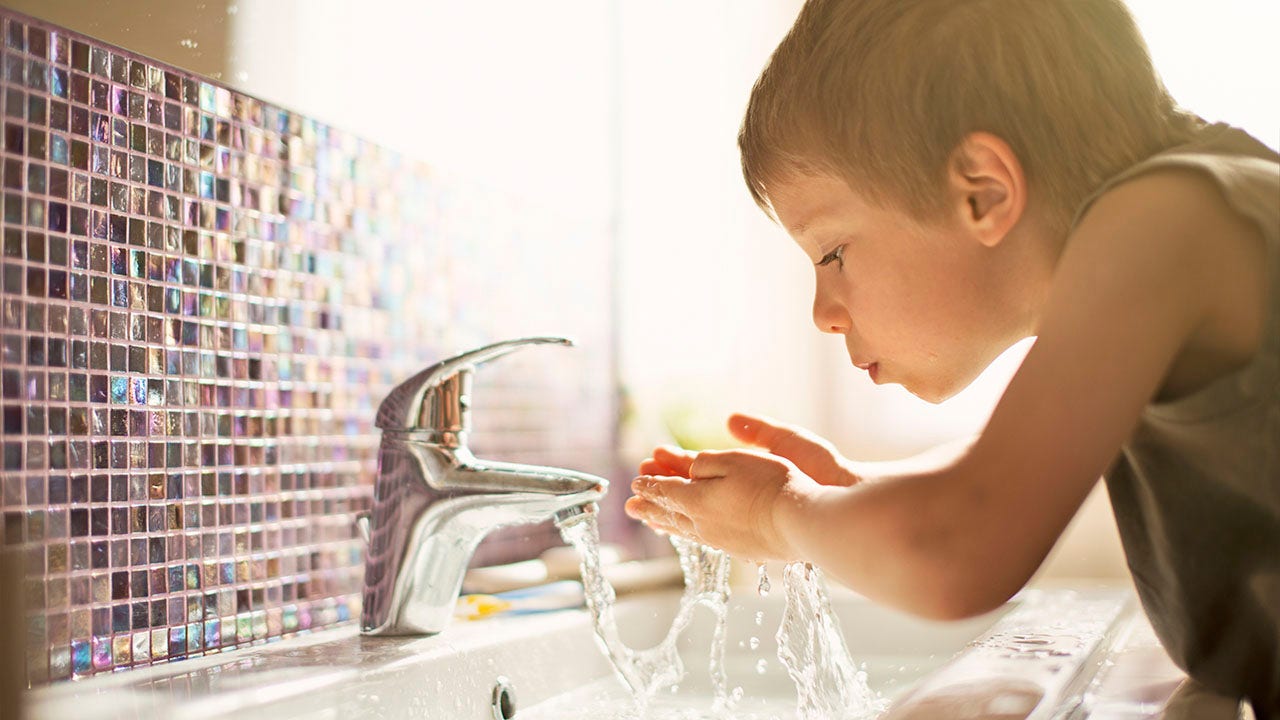
The debate about the benefits and risks of fluoride is ongoing, as RFK Jr. — incoming President Trump’s pick for HHS secretary — pushes to remove it from the U.S. water supply.
“Fluoride is an industrial waste associated with arthritis, bone fractures, bone cancer, IQ loss, neurodevelopmental disorders and thyroid disease,” RFK wrote in a post on X in November.
A new study published in JAMA Pediatrics on Jan. 6 found another correlation between fluoride exposure and children’s IQs.
RFK JR. CALLS FOR REMOVAL OF FLUORIDE FROM DRINKING WATER, SPARKING DEBATE
Study co-author Kyla Taylor, PhD, who is based in North Carolina, noted that fluoridated water has been used “for decades” to reduce dental cavities and improve oral health.
Fluoride exposure has been linked to a variety of negative health effects, yet benefits oral health. (iStock)
“However, there is concern that pregnant women and children are getting fluoride from many sources, including drinking water, water-added foods and beverages, teas, toothpaste, floss and mouthwash, and that their total fluoride exposure is too high and may affect fetal, infant and child neurodevelopment,” she told Fox News Digital.
The new research, led by scientists at the National Institute of Environmental Health Sciences (NIEHS), analyzed 74 epidemiological studies on children’s IQ and fluoride exposure.
FEDERAL JUDGE ORDERS EPA FURTHER REGULATE FLUORIDE IN DRINKING WATER DUE TO CONCERNS OVER LOWERED IQ IN KIDS
The studies measured fluoride in drinking water and urine across 10 countries, including Canada, China, Denmark, India, Iran, Mexico, Pakistan, New Zealand, Spain and Taiwan. (None were conducted in the U.S.)
The meta-analysis found a “statistically significant association” between higher fluoride exposure and lower children’s IQ scores, according to Taylor.
“[It showed] that the more fluoride a child is exposed to, the more likely that child’s IQ will be lower than if they were not exposed,” she said.

Scientists found a “statistically significant association” between higher fluoride exposure and lower children’s IQ scores. (iStock)
These results were consistent with six previous meta-analyses, all of which reported the same “statistically significant inverse associations” between fluoride exposure and children’s IQs, Taylor emphasized.
The research found that for every 1mg/L increase in urinary fluoride, there was a 1.63-point decrease in IQ.
‘Safe’ exposure levels
The World Health Organization (WHO) has established 1.5mg/L as the “upper safe limit” of fluoride in drinking water.
“There is concern that pregnant women and children are getting fluoride from many sources.”
Meanwhile, the U.S. Public Health Service recommends a fluoride concentration of 0.7 mg/L in drinking water.
“There was not enough data to determine if 0.7 mg/L of fluoride exposure in drinking water affected children’s IQs,” Taylor noted.
FDA BANS RED FOOD DYE DUE TO POTENTIAL CANCER RISK
Higher levels of the chemical can be found in wells and community water serving nearly three million people in the U.S., the researcher noted.
She encouraged pregnant women and parents of small children to be mindful of their total fluoride intake.
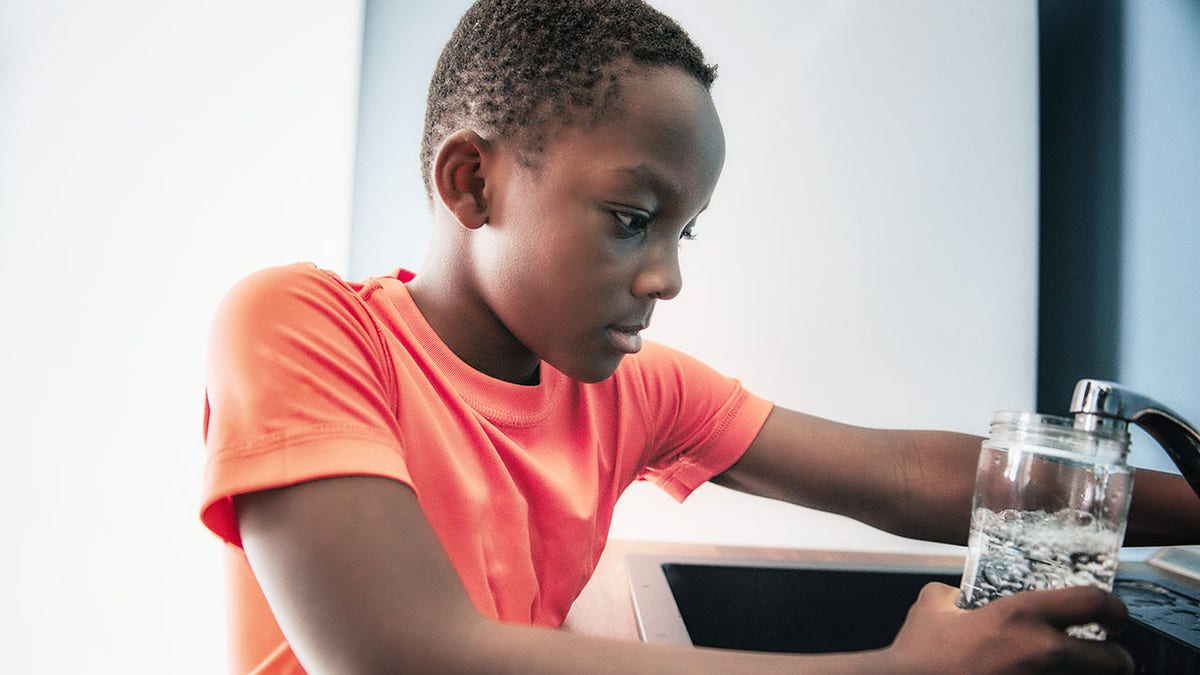
Nearly three million people have access to wells and community water with fluoride levels above the levels suggested by the World Health Organization. (iStock)
“If their water is fluoridated, they may wish to replace tap water with low-fluoride bottled water, like purified water, and limit exposure from other sources, such as dental products or black tea,” she said.
“Parents can use low-fluoride bottled water to mix with powdered infant formula and limit use of fluoridated toothpaste by young children.”
For more Health articles, visit www.foxnews.com/health.
While the research did not intend to address broader public health implications of water fluoridation in the U.S., Taylor suggested that the findings could help inform future research into the impact of fluoride on children’s health.
Dental health expert shares cautions
In response to this study and other previous research, Dr. Ellie Phillips, DDS, an oral health educator based in Austin, Texas, told Fox News Digital that she does not support water fluoridation.
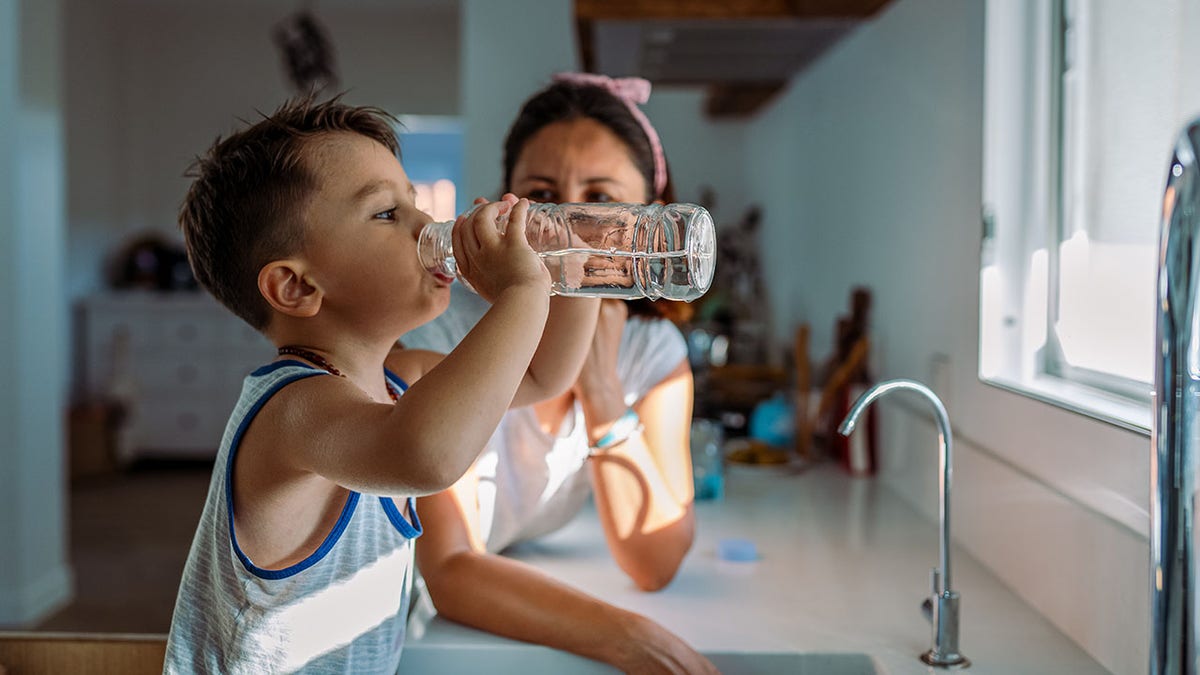
The study researcher encouraged parents of small children to be mindful of their total fluoride intake. (iStock)
“I join those who vehemently oppose public water fluoridation, and I question why our water supplies are still fluoridated in the 21st century,” she wrote in an email.
“There are non-fluoridated cities and countries where the public enjoy high levels of oral health, which in some cases appear better than those that are fluoridated.”
CLICK HERE TO SIGN UP FOR OUR HEALTH NEWSLETTER
Phillips called the fluoride debate “confusing” even among dentists, as the American Dental Association (ADA) advocates for fluoride use for cavity prevention through water fluoridation, toothpaste and mouthwash — “sometimes in high concentrations.”
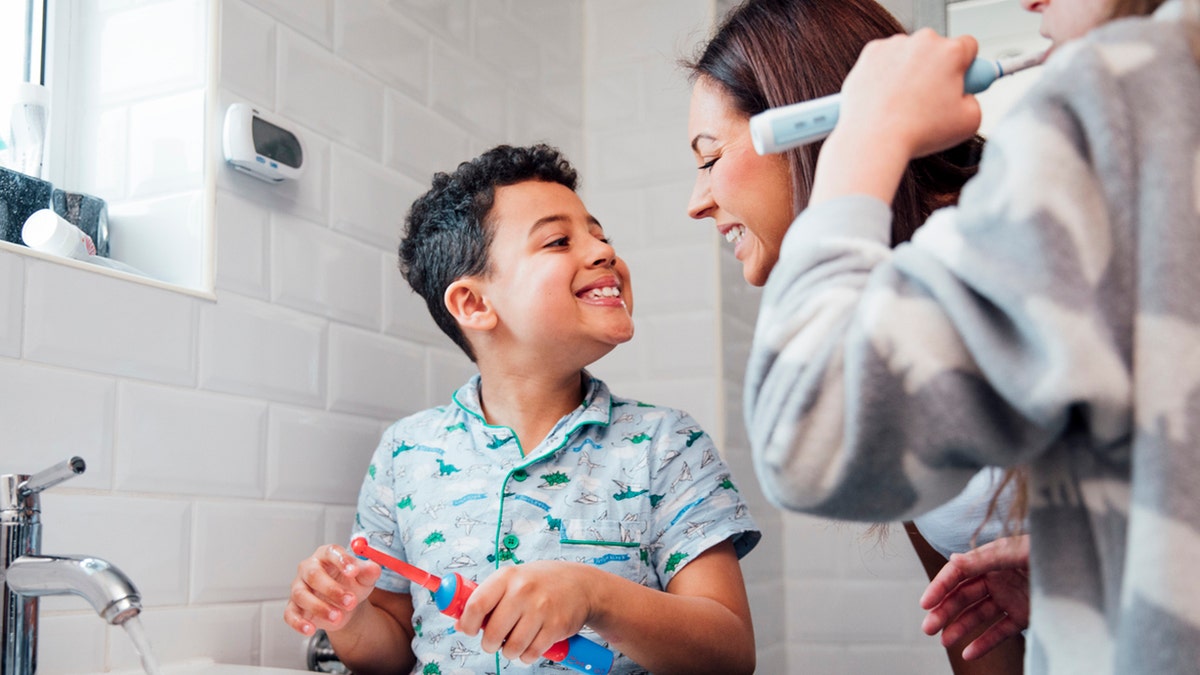
Fluoride is used in water, toothpaste and mouthwash to help prevent cavities. (iStock)
“[But] biologic (holistic) dentists generally encourage their patients to fear fluoride and avoid its use entirely, even if their teeth are ravaged by tooth decay,” she said.
“Topical fluoride is beneficial, while systemic consumption poses risks.”
Phillips encouraged the public to consider varying fluoride compounds, the effect of different concentrations and the “extreme difference” between applying fluoride topically and ingesting it.
“Topical fluoride is beneficial, while systemic consumption poses risks,” she cautioned.
“Individuals must take charge of their own oral health using natural and informed strategies.”
The study received funding from the National Institute of Environmental Health Sciences (NIEHS), the National Institutes of Health (NIH) and the Intramural Research Program.
Health
Treating Other Diseases With Ozempic? Experts Weigh In | Woman's World

Sign Up
Create a free account to access exclusive content, play games, solve puzzles, test your pop-culture knowledge and receive special offers.
Already have an account? Login
Use left and right arrow keys to navigate between menu items.
Use escape to exit the menu.
Health
FDA bans red food dye due to potential cancer risk

FDA looks to ban red food dye
Celebrity fitness trainer Jillian Michaels joins ‘Hannity’ to discuss the possibility of the FDA banning red food dye.
The U.S. Food and Drug Administration (FDA) has officially banned red dye — called Red 3, or Erythrosine — from foods, dietary supplements and ingested medicines, as reported by the Associated Press on Wednesday.
Food manufacturers must remove the dye from their products by January 2027, while drug manufacturers will have until January 2028 to do so, AP stated.
Any foods imported into the U.S. from other countries will also be subject to the new regulation.
RED FOOD DYE COULD SOON BE BANNED AS FDA REVIEWS PETITION
“The FDA is taking action that will remove the authorization for the use of FD&C Red No. 3 in food and ingested drugs,” said Jim Jones, the FDA’s deputy commissioner for human foods, in a statement.
The U.S. Food and Drug Administration has officially banned red dye — called Red 3, or Erythrosine — from foods, dietary supplements and ingested medicines (iStock)
“Evidence shows cancer in laboratory male rats exposed to high levels of FD&C Red No.3,” he continued. “Importantly, the way that FD&C Red No. 3 causes cancer in male rats does not occur in humans.”
The synthetic dye, which is made from petroleum, is used as a color additive in food and ingested drugs to give them a “bright cherry-red color,” according to an online statement from the FDA.

Food manufacturers must remove the dye from their products by January 2027, while drug manufacturers will have until January 2028 to do so. (iStock)
The petition to ban the dye cited the Delaney Clause, which states that the agency cannot classify a color additive as safe if it has been found to induce cancer in humans or animals.
The dye was removed from cosmetics nearly 35 years ago due to potential cancer risk.
CLICK HERE TO SIGN UP FOR OUR HEALTH NEWSLETTER
“This is a welcome, but long overdue, action from the FDA: removing the unsustainable double standard in which Red 3 was banned from lipstick but permitted in candy,” said Dr. Peter Lurie, director of the group Center for Science in the Public Interest, which led the petition effort, as reported by AP.

Nearly 3,000 foods are shown to contain Red No. 3, according to Food Scores, a database of foods compiled by the Environmental Working Group. (iStock)
Dr. Marc Siegel, clinical professor of medicine at NYU Langone Health and Fox News senior medical analyst, applauded the FDA’s ban.
“It was a long time coming,” he told Fox News Digital. “It’s been more than 30 years since it was banned from cosmetics in the U.S. due to evidence that it is carcinogenic in high doses in lab rats. There needs to be a consistency between what we put on our skin and what we put into our mouths.”
“There needs to be a consistency between what we put on our skin and what we put into our mouths.”
Siegel said he believes the FDA’s decision could be tied to the incoming new head of the Department of Health and Human Services, Robert F. Kennedy Jr.
“They knew it would have happened anyway under RFK Jr.,” he said. “It is already banned or severely restricted in Australia, Japan and the European Union.”
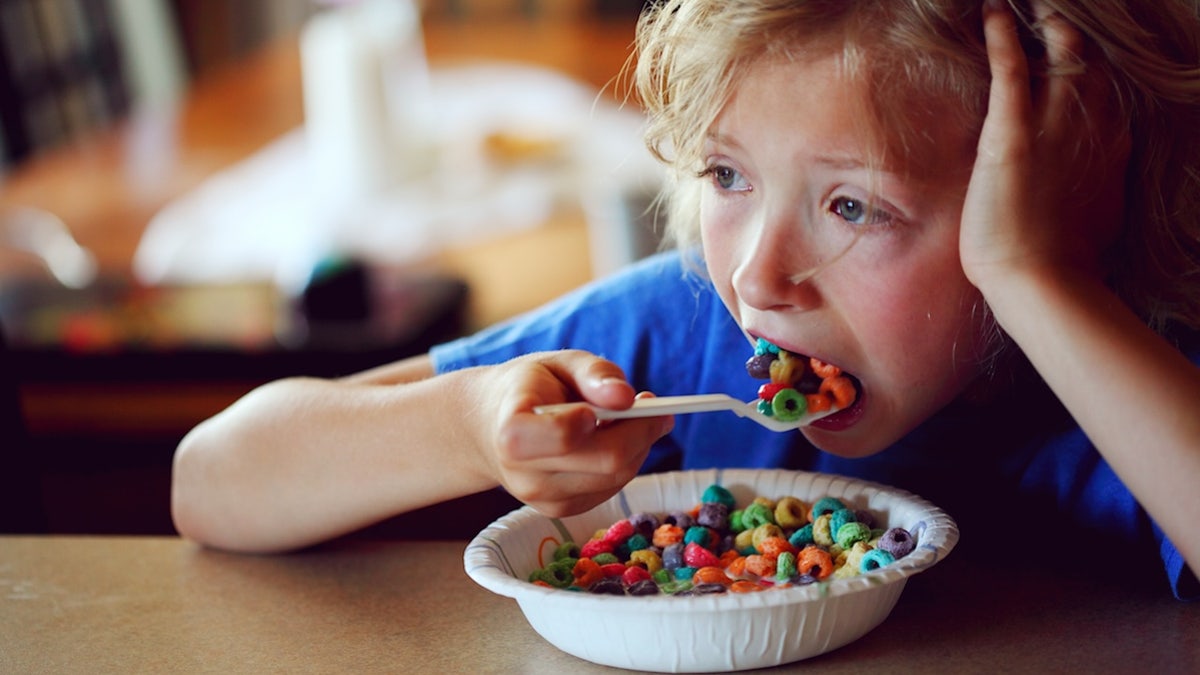
The food additive also “drew kids in” to a diet of empty calories and ultraprocessed foods, one doctor stated. (iStock)
The food additive also “drew kids in” to a diet of empty calories and ultraprocessed foods, Siegel added.
“It has also been linked to behavioral issues in children, including ADHD.”
Nearly 3,000 foods are shown to contain Red No. 3, according to Food Scores, a database of foods compiled by the Environmental Working Group.
For more Health articles, visit www.foxnews.com/health
The National Confectioners Association provided the below statement to Fox News Digital.
“Food safety is the number one priority for U.S. confectionery companies, and we will continue to follow and comply with FDA’s guidance and safety standards.”
The petition to remove Red No. 3 from foods, supplements and medications was presented in 2022 by the Center for Science in the Public Interest and 23 other organizations and scientists.
-
/cdn.vox-cdn.com/uploads/chorus_asset/file/25822586/STK169_ZUCKERBERG_MAGA_STKS491_CVIRGINIA_A.jpg)
/cdn.vox-cdn.com/uploads/chorus_asset/file/25822586/STK169_ZUCKERBERG_MAGA_STKS491_CVIRGINIA_A.jpg) Technology1 week ago
Technology1 week agoMeta is highlighting a splintering global approach to online speech
-

 Science7 days ago
Science7 days agoMetro will offer free rides in L.A. through Sunday due to fires
-
/cdn.vox-cdn.com/uploads/chorus_asset/file/23935558/acastro_STK103__01.jpg)
/cdn.vox-cdn.com/uploads/chorus_asset/file/23935558/acastro_STK103__01.jpg) Technology6 days ago
Technology6 days agoAmazon Prime will shut down its clothing try-on program
-

 News1 week ago
News1 week agoMapping the Damage From the Palisades Fire
-

 News1 week ago
News1 week agoMourners Defy Subfreezing Temperatures to Honor Jimmy Carter at the Capitol
-
/cdn.vox-cdn.com/uploads/chorus_asset/file/25826211/lorealcellbioprint.jpg)
/cdn.vox-cdn.com/uploads/chorus_asset/file/25826211/lorealcellbioprint.jpg) Technology6 days ago
Technology6 days agoL’Oréal’s new skincare gadget told me I should try retinol
-
/cdn.vox-cdn.com/uploads/chorus_asset/file/25832751/2192581677.jpg)
/cdn.vox-cdn.com/uploads/chorus_asset/file/25832751/2192581677.jpg) Technology3 days ago
Technology3 days agoSuper Bowl LIX will stream for free on Tubi
-

 Business4 days ago
Business4 days agoWhy TikTok Users Are Downloading ‘Red Note,’ the Chinese App
/cdn.vox-cdn.com/uploads/chorus_asset/file/25530683/Screenshot_2024_07_14_at_6.17.45_PM.png)









